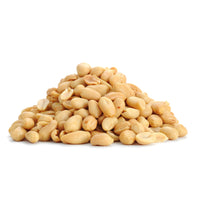

USDA Dietary Guidelines: the key to preventing food allergies
“Introducing peanut-containing foods in the first year reduces the risk that an infant will develop a food allergy to peanuts.”



When is early allergen introduction the most effective?
Before your baby turns 1 is the safest time to feed them allergens like peanut, egg, and milk.



Newest guidance on preventing food allergies
“To prevent peanut and/or egg allergy, peanut and egg should be introduced around [4-]6 months of life”

GUIDELINES IN THE NEWS
Read about the food allergy prevention recommendations in top publications
FEATURED
Read our summaries of the food allergy prevention medical guidelines

New Medical Guidelines: “Peanut and Egg Should Be Introduced Around 4-6 Months”
New guidance from leading medical organizations, the American Academy of Allergy, Asthma, and Immunology (AAAAI); the American College of…
Read More
New Research Shows It’s Safe to Feed Allergens to Infants
New research shows that before your baby turns 1 is the safest time to feed them common allergy-causing foods, like peanut, egg, and milk. We break down…
Read More
A Parent’s Guide to the EAT Study on Early Allergen Introduction
The EAT study shows that feeding babies allergy-causing foods early and often can help reduce their food allergy risk. We cover everything parents need to know…
Read MoreMedical guidelines recommend early allergen introduction for babies
Leading health organizations including the American Academy of Pediatrics (AAP), the National Institutes of Health (NIH), and the American Academy of Allergy, Asthma, and Immunology (AAAAI) have updated their guidelines for the early introduction of peanut, and are in the process of developing new guidelines for egg and other allergenic foods.
L.E.A.P STUDY
Learning Early About Peanut Allergy
E.A.T STUDY
Enquiring About Tolerance
P.E.T.I.T STUDY
Prevention of Egg Allergy in High-Risk Infants with Eczema
L.E.A.P STUDY
Learning Early About Peanut Allergy
E.A.T STUDY
Enquiring About Tolerance
P.E.T.I.T STUDY
Prevention of Egg Allergy in High-Risk Infants with Eczema

L.E.A.P STUDY
Learning Early About Peanut Allergy
- Starting at 4 months of age
- Duration of exposure 4 years
- 6g peanut protein per week
Over 600 children between 4 and 11 months of age at high risk for peanut allergy were randomized to either consume or avoid peanut until age 5 in order to compare the incidence of peanut allergy between the two groups.
Learn More

E.A.T STUDY
- Starting at 3 months of age
- Duration of exposure 3 months
- 4g peanut, egg, milk protein per week
1,300 3-month-old babies that represented the general population (no risk factors) were randomized to either consume or avoid peanut, cooked egg, cow's milk, sesame, white fish, and wheat until age 3, in order to measure early introduction's effectiveness on various potential food allergens. Measurement occurred every 3 months.
Learn More

P.E.T.I.T STUDY
Prevention of Egg Allergy in High-Risk Infants with Eczema
- Duration of exposure 6 months
- Starting at 4 months of age
- 50-250mg egg protein per week
147 children between 4 and 5 months of age with atopic dermatitis (eczema) were randomized to either consume or avoid egg for 6 months, in order to determine if step-wise (low to high dose) early allergen introduction is an effective method of lowering the risk of food allergy development.
Learn More








